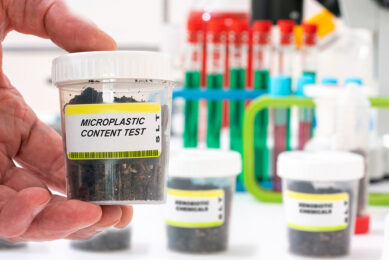University chairman pledges for innovation award
Wageningen UR wants to hand out an annual Innovation Award for the scientific research of most practical use. This was announced by Executive Board Chairman Aalt Dijkhuizen in his traditional New Year’s speech.
The aim of the Innovation Award is to show how relevant and valuable Wageningen research is. According to Dijkhuizen, this is necessary as science and higher education are facing difficult times financially.
The cuts for students who study too long (in relation to the set time for the study) will have an effect on teaching while scientific research will be affected by the cabinet’s decision no longer to use the natural gas revenues (FES) to stimulate research.
“What that means for Wageningen is that we will have to think hard about new sources of funding,” Dijkhuizen said.
Optimistic
The Executive Board Chairman is optimistic about the possibility of finding new sources. “After all, the DLO agri-institutes have been doing this successfully for the past few years.”
In addition, he points to the many grants and subsidies won last year, which have put Wageningen UR in a healthy financial position.
Dijkhuizen is also positive about the relationship with the new ministry. “We are continually being cited as an example of how things should be done. There was uncertainty about how the abolition of the Ministry of Agriculture would turn out for us but I would say now that we are 2-0 ahead.”
Becoming too international
Other focal points for policy in the year ahead include developing the campus and modernizing employee and student consultation.
One notable aspect is that Wageningen UR is the first university to come up against the limits of internationalization.
The subsidy quota for foreign students from outside the EU has been achieved this year. According to Dijkhuizen, this means a critical look should be taken at which foreign students should be admitted in the future and which not.











